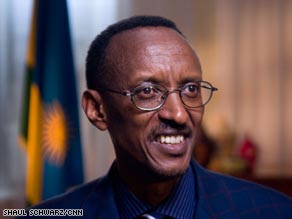- The Guardian, Wednesday December 3 2008
A British surgeon volunteering in the Democratic Republic of Congo saved the life of a teenage boy by amputating his shoulder using instructions texted by a colleague in London.
David Nott, 52, a general and vascular surgeon at Chelsea and Westminster hospital, was working with the charity Médecins sans Frontières (MSF) in the town of Rutshuru when he came across the badly injured 16-year-old in October.
The teenager's left arm had been so badly damaged - either in an accident or as a result of the fighting between Congolese and rebel troops - that it had already had to be amputated. But the flesh and bone that remained had become badly infected and gangrenous.
"He was dying" said Nott. "He had about two or three days to live."
The doctor realised the boy's best chance of survival was a forequarter amputation which requires the surgeon to remove the collar bone and shoulder blade. The only problem was that it was an operation Nott had never performed. But he remembered that one of his colleagues at home had carried out the procedure.
"I texted him and he texted back step-by-step instructions," he said.
"Even then I had to think long and hard about whether it was right to leave a young boy with only one arm in the middle of this fighting.
"But in the end he would have died without it, so I took a deep breath and followed the instructions to the letter."
Such an operation, if performed in the UK, would require careful planning with every sort of modern medical product on hand if things went wrong.
But in Congo Nott had just one pint of blood and an elementary operating theatre.
Despite the basic conditions, the operation was a success and the teenager made a full recovery.
More than 5 million people have been killed in Congo since the early 1990s when the Rwandan genocide spread into what was then Zaire.






 After eight years of research, two South African developed HIV vaccines are to become the first African vaccines to undergo human clinical trials in the United States.
After eight years of research, two South African developed HIV vaccines are to become the first African vaccines to undergo human clinical trials in the United States. The South African Aids Vaccine Initiative (SAAVI), which is a programme of the Medical Research Council (MRC) and is supported by the South African government, announced that the first phase of safety trials will begin in Boston, USA this week.
The South African Aids Vaccine Initiative (SAAVI), which is a programme of the Medical Research Council (MRC) and is supported by the South African government, announced that the first phase of safety trials will begin in Boston, USA this week. 